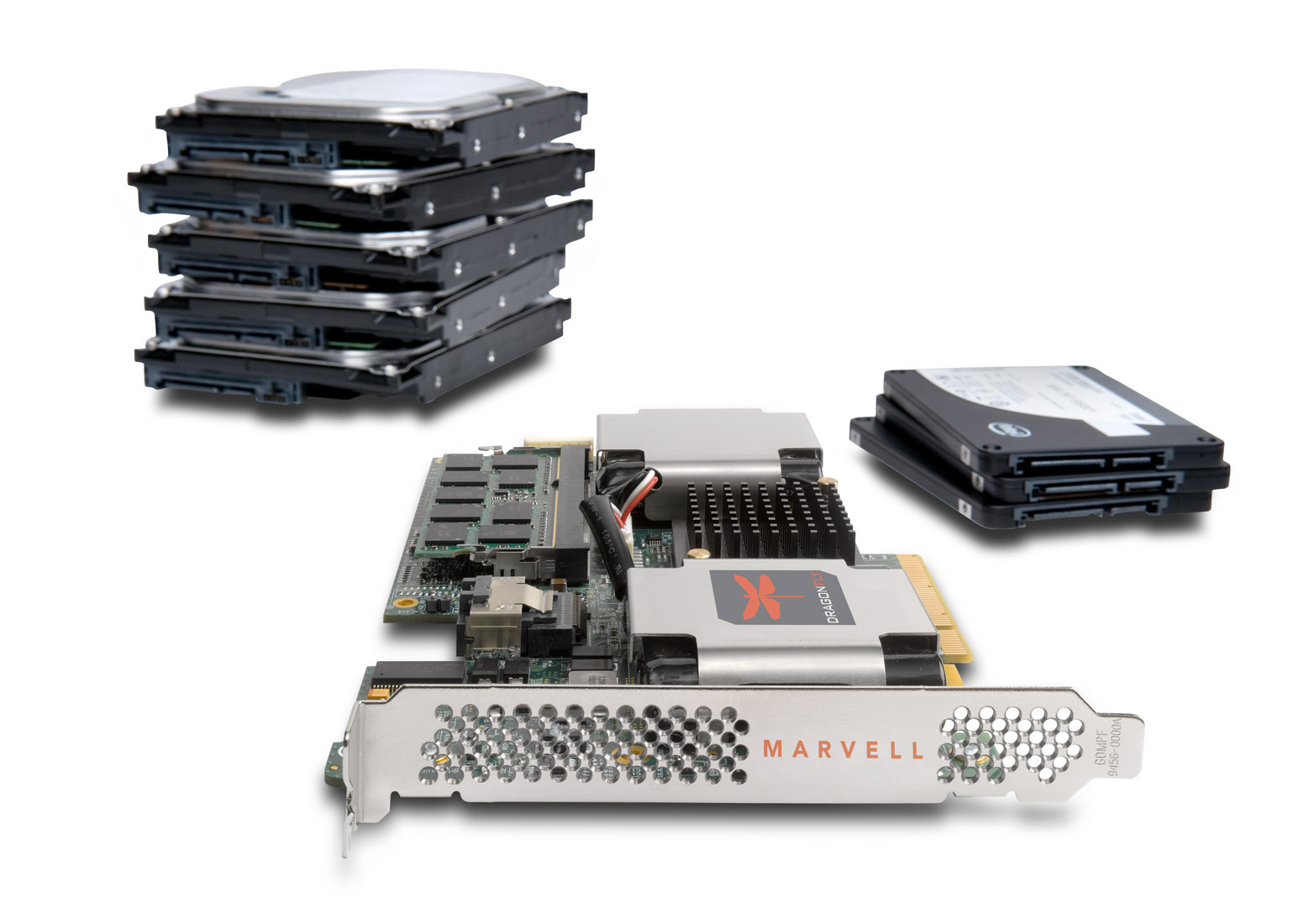Marvell plans to begin selling PCIe adapter cards that will act as I/O accelerators or cache in order to boost the performance and resiliency of consumer-class solid-state drives (SSDs).
Each of the cards allows for up to four SSDs to be used for a total of 1.5TB of storage capacity.
Marvell's new DragonFly NVRAM accelerator card and DragonFly NVCache card are aimed at optimizing data writes to and reads from SSDs. The cards can accept either SAS or SATA 2.5-in. SSDs. The products will begin shipping Sept. 15.

Marvell's new NVCache card with examples of 2.5-in. SAS and SATA SSDs in the background.
Both DragonFly cards plug directly into commercially available servers with a PCIe slot. The NVRAM and NVCache cards are PCIe Gen2 x8 adapters with 4GB or 8GB SO-DIMM (small outline dual in-line memory module) DRAM.
The NVRAM card offers read and write acceleration producing up to 3.2GBps of throughput or 220,000 input/output operations per second (IOPS) for data reads and 220,000 IOPS for writes.
The DragonFly NVCache card is aimed at eliminating I/O server to storage bottlenecks by caching writes and optimizing the order of them prior to them being written to the SSDs. The NVCache card leverages hardware-assisted write-back caching on tiered non-volatile memory (NVRAM + off-the-shelf SSDs) to yield 10 to 100 times higher virtual machine IOPS, while lowering NAS/SAN and local DAS IOPS demands by 50% or more, Marvell said.
The cards offer synchronous, peer-to-peer write mirroring, meaning the data being cached on one card can be replicated to another card in the same server or one in a different physical box for data resiliency.
The cards also come with ultracapacitors to protect data in the event of power loss.
"Managing write acceleration is difficult. When you write data and use it as write-back or read cache, you need to protect that data. So the ultracapacitor backup is critical," said Shawn Kung, director of product marketing for the Storage Business Group at Marvell.
Ultracapacitors hold enough power so that in the event of a power outage, the DRAM has enough time to write the data to the non-volatile flash in the SSDs.
The cards support several virtual hypervisors including KVM, Xen, VMWare and operating systems such as Red Hat Linux and Windows.
"This is about how to manage data as it flows through to a SATA or a SAS SSD," Kung said. "You can take standard, off-the-shelf consumer SSDs (MLC) with a cost of less than one dollar per gig and connect them to a Marvell card and create a solution that's better in performance, has lower latency but is a fraction of the cost of high-end PCIe SSDs."
The starting price for an NVCache card with 4GB of DRAM is about $3,500. Pricing wasn't available for the NVRAM accelerator card.
Lucas Mearian covers storage, disaster recovery and business continuity, financial services infrastructure and health care IT for Computerworld.





